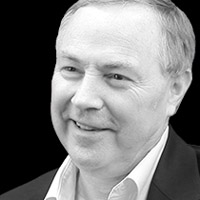Can DAFs Maximize Family Office Charitable Dollars?

Can DAFs Maximize Family Office Charitable Dollars?
When you hear the name John D. Rockefeller, an image of the first, made in the USA, billionaire may come to mind. Brilliant and extraordinary, yes, but we’re going to discuss his son and only heir to the immense Rockefeller fortune. John D. Rockefeller Jr. who spent much of his life dedicated to…
…philanthropy. He graduated from Brown University and then went to work for his father. He didn’t have any specific responsibilities, but there was an expectation that he would be doing business and philanthropic work. However, John quickly found he didn’t have the same knack for making profit that his father did, and after a nervous breakdown, left his job and decided to dedicate his life to charitable giving.[1]
Good thing too, because it was the brilliant and extraordinary John Jr. that we have to thank for one of the key charitable vehicles utilized by family offices today, the Donor Advised Fund (DAF). “The first DAF was established in 1931, by the New York Community Trust and was supported and sustained by John D. Rockefeller Jr. It allowed individual donors to support charitable causes they were passionate about as opposed to grant decisions being made by the community foundation”.[2]
So what exactly is a Donor Advised Fund?
Donor Advised Funds are charitable vehicles that fall in between Public Charities and Private Foundations. They allow individuals and family office wealth to take advantage of charitable tax deductions up front while controlling when and to whom their assets are given. This giving vehicle could be utilized by a donor when they have a spike in income that puts them into a higher tax bracket than they had anticipated. A good example of this would be someone selling their company. If they know that they would like to commit a certain amount of money to a charity in the future, but aren’t quite sure yet which, they can put the money in a donor advised fund. When that happens, the donor gives up possession/ownership of the money, however they are still able to advise when the money is donated and to which organizations the funds will benefit. Since the donor gives up possession of the money, they receive a tax deduction in the current year, even though he or she may not yet know to whom they will ultimately gift the funds.[3]
Does a DAF help with tax planning?
The fact that a donor can now separate the timing of the gift from the year the tax deduction is received, creates a lot of flexibility for tax strategies. Additionally, certain basis rules that apply regarding the donations of non-cash assets to private foundations don’t apply to donor advised funds. Alan Cantor, who is a nonprofit consultant provides us with the following example to illustrate why a donor advised fund can be much more beneficial in comparison to private foundations:
“Let’s imagine that you’re a donor and you bought a house on Lake Tahoe in 1962 for $100,000. It’s now worth $5 million dollars. And you want to create a charitable entity that you can make charitable gifts from. If you put that into a private foundation, the only tax deduction you would get would be that $100,000 that you bought the house for 50 years ago. If you put it into a donor advised fund, you would get a $5,000,000 deduction because technically it is considered part of a public charity that technically controls the donor advised fund.”[4]
We hope you found this article about can DAFs maximize family office charitable dollars helpful. If you have questions or need expert tax or family office advice that’s refreshingly objective (we never sell investments), please contact us or visit our Family office page or our website at www.GROCO.com. Unfortunately, we no longer give advice to other tax professionals gratis.
To receive our free newsletter, contact us here.
Subscribe to our YouTube Channel for more updates.
Considerately yours,
GROCO, GROCO Tax, GROCO Technology, GROCO Advisory Services, GROCO Consulting Services, GROCO Relationship Services, GROCO Consulting/Advisory Services, GROCO Family Office Wealth, and GROCO Family Office Services.
[1] https://www.philanthropyroundtable.org/almanac/people/hall-of-fame/detail/john-rockefeller-jr
[2] https://thesignatry.com/daf-history/
[3] https://www.fidelitycharitable.org/guidance/philanthropy/what-is-a-donor-advised-fund.html
Royse Law Firm | Roger Royse
About Roger Royse Roger Royse, the founder of the Royse Law Firm, works with companies ranging from newly formed tech startups to publicly traded multinationals in a variety of industries, including technology, entertainment and new media, sports, real estate and agri-business. Roger regularly advises on complex tax structuring, high stakes business negotiations and large…
Helping Others, Dow Wilson, CEO of Varian Medical Systems
About Dow Wilson Dow R. Wilson varian has been the Chief Executive Officer and President of Varian Medical Systems, Inc. since September 29, 2012. Mr. Wilson served as the Chief Operating Officer and served as Corporate Executive Vice President of Varian Medical Systems Inc., from October 2011 to September 2012. He served as a…
Up Your Game – David Bradford, Executive Chairman of Hirevue
About David Bradford Known for accelerating the growth and performance of game-changing organizations, David Bradford is Executive Chairman of HireVue. Bradford is a proven business leader with nearly 30 years of experience, acknowledged by many as a significant contributor to the evolution of information technology. Until April of 2010, Bradford served as CEO of…
Earthly Angels – Pamela Hawley, CEO of UniversalGiving
About Pamela Hawley Pamela Hawley is the founder and CEO of UniversalGiving™ (www.UniversalGiving.org), an award-winning nonprofit helping people to donate and volunteer with top performing, vetted organizations all over the world. 100% goes direct to the cause! All organizations are vetted with a proprietary Quality Model™. UniversalGiving Corporate helps manage global CSR for companies,…




